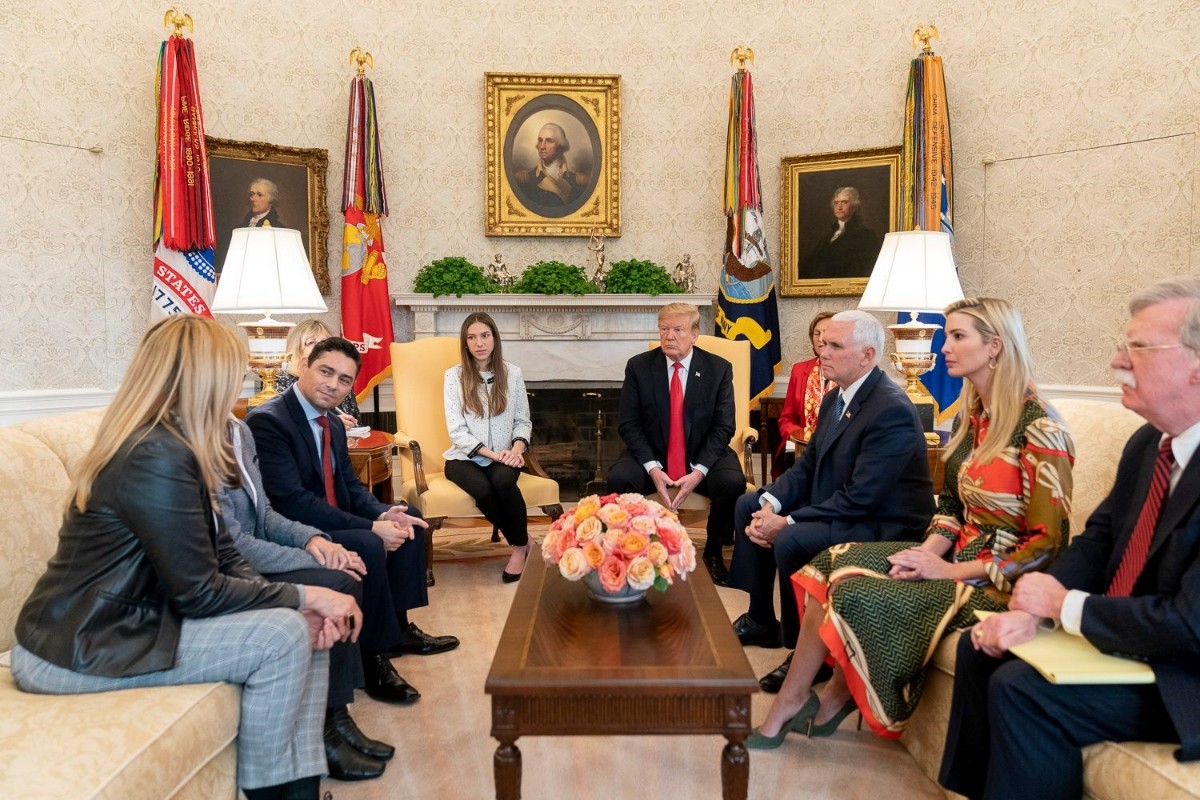 The White House Official Photo
The White House Official Photo
Keep U.S. Boots Off the Ground in Venezuela
Yes, the Russian military has troops in Venezuela. No, the United States should not respond with its own military presence.
Russia is currently backing Venezuelan President Nicolás Maduro against Juan Guaido, the head of the National Assembly who declared himself interim President less than a year after the likely fraudulent 2018 election. Guaido’s interim Presidency is supported by the U.S. and a myriad of other countries.
Why is Russia so heavily involved? Should the U.S. supplement its rhetoric with troops as well?
Russia’s Moves and Motives
In May of 2018, Maduro was re-elected to the Presidency, though the election was “marred by an opposition boycott and widespread claims of vote-rigging,” according to BBC. Since this election, Venezuela has continued to suffer through hyperinflation, mass exodus, and several blackouts. In January of 2019, Guaido declared himself interim President and called for free elections. However, Maduro and Russia did not recognize his position. The United States did, though, prompting Maduro to break off relations.
Russia has long been an ally of Venezuela—considering both countries have remained highly critical of the West and of the United States in particular, it’s logical that Putin would foster a strong relationship with Hugo Chavez, and later Nicolás Maduro. But Russia’s ties to Venezuela are deeper than ideology.
Russia has invested significant amounts of money into propping up Maduro’s presidency, most of which was given to the government in the form of credit. If Maduro falls, not only will Russia not get its loaned money back, but it will have bankrolled Maduro for nothing at a time when Russia is on a tight budget anyway.
Russia and Venezuela have long been cooperative on trade, and Russia has, as recently as January, invested upwards of $6 billion in Venezuela’s oil and gold sectors. The two countries are continuing this trend amongst all the chaos, as they plan to sign more cooperation agreements on the economy and energy, according to TASS, a Russian source. However, Venezuela has continued to struggle with oil output, and the U.S. is constantly placing more sanctions on them. Despite the billions Russia has thrown into the “black hole” that is Venezuela, Putin seems to be doubling down in his support for the regime—with troops.
On Sunday, two Russian military planes landed at the airport in Caracas carrying 100 people and 35 tons worth of military equipment. While the exact details of the contents is unclear, we know Russia has routinely sent officers and military advisors to Venezuela—but 100 is the most so far. Foreign Ministry spokeswoman Maria Zakharova confirmed the military presence on Thursday, stating that the specialists are “in accordance with the provisions of the bilateral intergovernmental agreement on military-technical cooperation” between Moscow and Caracas, according to CNN.
The American Response?
The U.S. has been quick to respond to the Russian military presence: Secretary of State Mike Pompeo stated that the Russian military presence “risks prolonging the suffering of the Venezuelan people.” President Trump stated simply that “Russia has to get out” during a meeting with interim President Juan Guaido’s wife, Fabiana Rosales.
Both Trump and Pompeo, when asked what the U.S. will do to get rid of the Russian military presence, have been adamant that “all options are open.”
Essentially, Russia is recreating and pressuring the U.S. to participate in Cold War-style conflicts to assert itself abroad. This is evident not only in recent months, as Putin threatened a new Cuban Missile Crisis standoff, but also within the statements regarding Venezuela.
Kremlin spokesman Dmitry Peskov observed on Thursday: “Regarding the US, they are present in many corners of the world, nobody tells them where they can be and where they can’t be.” Russia is framing itself as the protector of Maduro’s socialist regime, as Russian Deputy U.N. Ambassador Dmitry Polyanskiy said, “It’s not up to US to decide actions and fate of other countries. It’s only up to the people of Venezuela.”
If the U.S. military gets involved in Venezuela, it’s buying into the Cold War games Russia has restarted. This issue is up to the people of Venezuela, and the U.S. military will only prompt a larger Russian presence, further instability in Venezuela, or both. The U.S. has a long and messy history in South America, and intervention in Venezuela won’t make that history any better.
If anything, the existing Russian military presence might be enough to preclude the U.S. from sending troops into yet another costly intervention requiring more of a political resolution than a military one.





